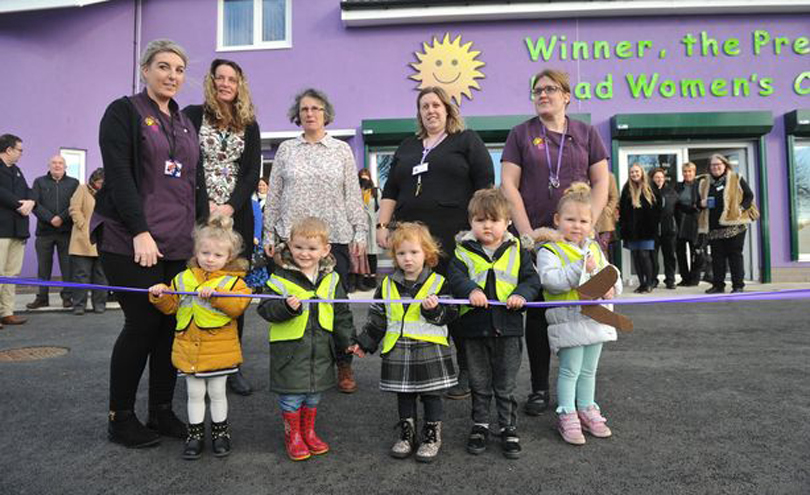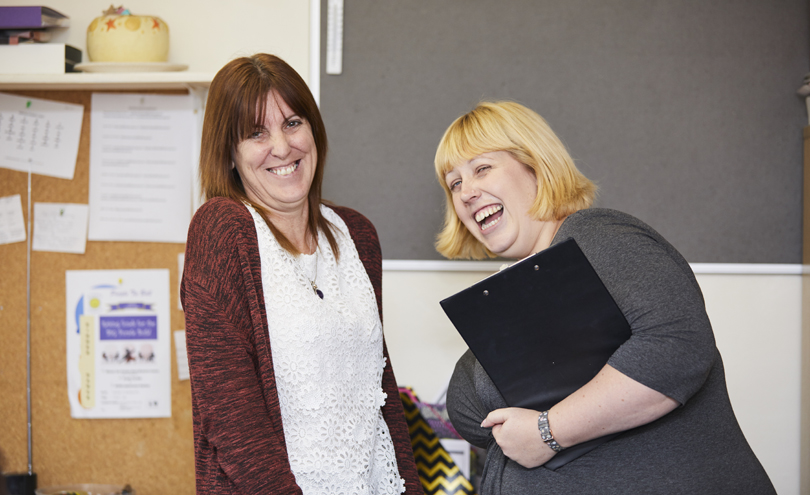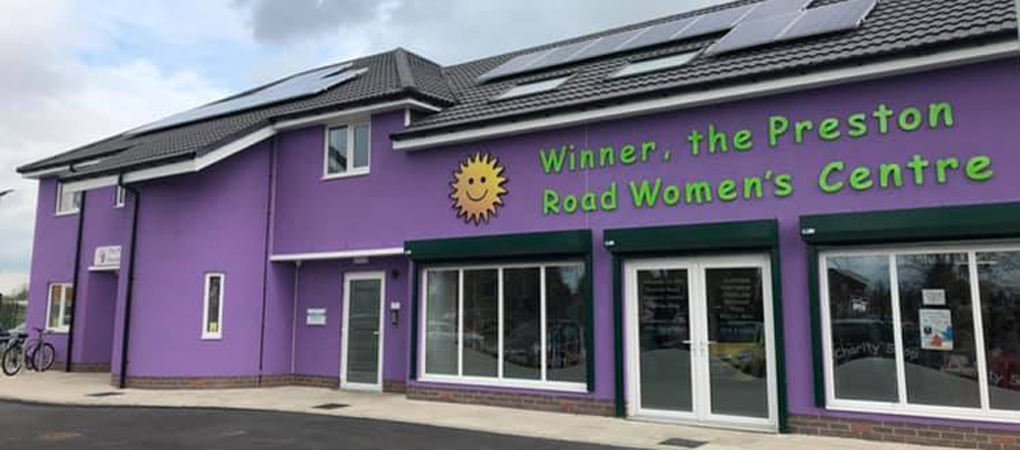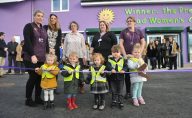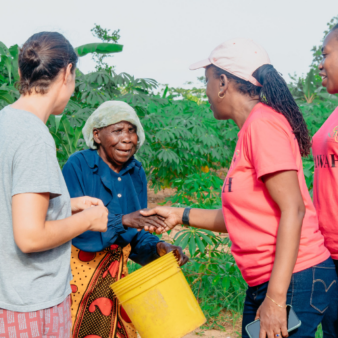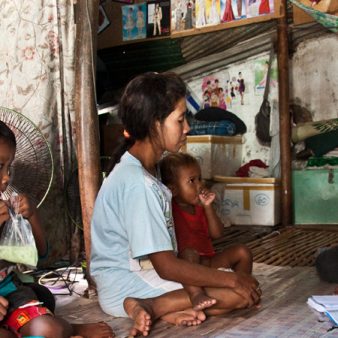The city of Hull has one of the highest incidences of domestic abuse in England. The local authority estimates that 24,690 women and 18,468 children – approximately one-in-six (16%) of the city’s population – experience domestic abuse each year. Nation-wide, one in four women will experience domestic abuse in their lives.
Lack of temporary accommodation is a problem across the UK, where 60% of women referred to specialist refuges are turned away, mainly due to lack of space, according to Women’s Aid. In 2018/19, Hull Women’s Network received more than 650 applications for temporary accommodation.
Pressure on accommodation has increased during the COVID-19 pandemic, which – according to Women’s Aid – has forced more than three-quarters (76.1%) of women experiencing domestic abuse in the UK to spend more time with their abuser. More than two-in-three (67.4%) women said the abuse had worsened during the pandemic.
Despite the shortage of temporary accommodation, thousands of properties in Hull sit empty, part of a wider housing crisis in the city. In February 2021, more than 3,900 privately owned houses had been unoccupied for over six months.
Hull Women’s Safe Homes is using these empty properties to tackle the lack of safe, suitable accommodation for women and children fleeing domestic abuse. The project buys houses, which are often in severe disrepair, and refurbishes them to become safe, affordable homes.
The project is run by The Winner group of six organisations based at Preston Road Women’s Centre in Hull. Between them, the organisations provide wraparound support services to ensure the women can successfully start a new life, away from their abuser. In addition to housing provision, these services include specialist domestic abuse support, nursery care, accredited training, and legal advice.
Since 2012, the project has housed 1,800 people, including 109 women and children who were provided with a safe home in the past year. They have also become nationally significant pioneers in social investment, co-designing new funds which will help additional projects – across the UK – support hundreds more women.
The project in practice
The project was established in response to the needs of women in the area, as expressed by women using the Preston Road Women’s Centre and observed by The Winner group.
Women trying to escape a violent home are often offered poor quality housing in isolated locations by housing associations and the local authority, which are ill-equipped to meet their safety and recovery needs. As a result, women will leave and return to an abusive relationship seven times on average, before making a permanent break from the perpetrator. The women housed and supported by the Hull Women’s Safe Homes project, are more likely to make that permanent break first time round.
The project began purchasing its refurbishment properties between 2008 and 2012, before starting under the UK Government’s Empty Homes Programme in 2012, which seeks to bring long-term vacant properties back into use. Hull City Council’s empty homes team notifies the project of suitable vacant properties, while others are purchased on the open market.
Today Hull Women’s Safe Homes owns, leases or manages 220 properties across the city. This includes 44 owned by Winner Trading (the group’s registered social landlord) and 106 owned by Hull Women’s Network. Seventy homes are leased from private owners.
Any woman, in or outside Hull, can apply for the housing programme by completing an application form in person at the Preston Road Women’s Centre, over the phone or online. The project also receives referrals from other agencies.
Applications are robustly assessed, and priority is given to women and children experiencing current or recent domestic abuse, those who are homeless or threatened with homelessness, those living in overcrowded housing, and those living in properties in poor condition.
Women usually seek support to escape a current domestic abuse situation or immediately after leaving an abusive relationship. The project’s wraparound services help them through the initial crisis and to plan and manage their long-term recovery.
Safe housing is the first stage in creating a stable environment. Each of the project’s homes is refurbished to the UK’s Decent Homes Standards and has proper insulation and security. Properties are located close to schools, public transport, and local amenities such as shops and medical care, so women and children can continue to play an active role in their communities.
The women pay rent and can stay in the properties for as long as required. For some, this is only a few weeks, while for others it can be for several years, depending on their individual circumstances. The average length of stay is 17 months.
Funding
The project’s operations are funded through a combination of charitable grants, local authority funding, housing benefit payments and affordable charges for property management and legal services.
The purchase of houses is funded through a mixture of capital grants and repayable finance. The project’s assets were valued at £11.4 million ($16.18 million USD) in 2021. Equity in the existing portfolio is 51%, and this increases each year as the debt is repaid.
In 2019, the gross rental income across the group was around £1.2 million ($1.7 million USD), with a net surplus income of £84,744 ($120,313 USD) after all costs were paid and including rental income and grants.
Rent levels are set according to an exempt accommodation scheme agreed with the council. This means the housing allowance received by residents covers not only their rent but also the cost of the additional support services provided by the project.
Not everyone’s rent is fully covered by Housing Benefit or Local Housing Allowance, as the amount received depends on individual circumstances. Women subject to immigration controls are not entitled to receive public welfare payments, including housing benefit, unless they are approved for the Domestic Violence concession. The project helps them to apply for this. Other residents can apply to a hardship fund through the Preston Road Women’s Centre to top up their rent.
The group has contracts with the local authority, which part-funds the specialist domestic abuse support service and some nursery placements.
Impact
The project provides women and children with a safe route out of domestic abuse by placing affordable and secure housing at the centre of a holistic support service, which can be individually tailored to generate maximum impact for each person.
More than 5,000 women and children have benefitted from the range of services provided by The Winner group at the Preston Road Women’s Centre, including 1,800 people housed through the Hull Women’s Safe Homes project.
Accredited training is offered in-house at the Centre, which is accredited through the National Open College Network, to help improve women’s access to employment. Confidence building courses, including interview skills, are also available. Since 2019, 192 women have entered into education and work.
Volunteering opportunities are offered to women by all of the services at the Centre. Some women have made the journey all the way from a domestic abuse crisis to recovery, to volunteer, to paid member of staff.
Bringing empty homes back into use for social housing helps to strengthen and sustain communities. Each home is refurbished to meet modern energy efficiency standards through proper insulation and windows. This not only improves the comfort and health of residents, but is also more environmentally beneficial than building new properties and using undeveloped land. Since 2019, 138 properties have been brought back into use through the project.
Expansion and transfer
The project’s diversified funding stream limits financial risk and provides a positive long-term outlook. Since 2008 this project has scaled-up from an initial portfolio of 10 properties to 220 homes either owned, leased or managed across Hull. It aims to increase this number to 300 over the next five years. These plans include developing an historic building and grounds in Hull into 15 one-bedroom homes, and expanding into the neighbouring local authority.
The Winner group continues to work with national networks and funders so the model can be used by other women’s sector organisations across the UK, as well as those serving other vulnerable groups. A decade ago, there was little social investment for housing until the Winner Group created and pioneered the model of registering as a social landlord and owning properties, supported by Social and Sustainable Capital (SASC). This project drove the creation of both the Social and Sustainable Housing (SASH) and the Women in Safe Homes (WISH) funds. SASH has £75 million available for funding and is working with 20 to 30 organisations, having so far invested £43.3 million ($61.29 million USD) in eight organisations across the UK. WISH will provide 600 safe homes for women across the UK in its first phase. Together they will provide more than £200 million ($284 million USD) of social investment for housing for vulnerable client groups.
The Winner group is also working with the Clothworkers Foundation and the John Laing Charitable Trust, which are providing grant funding to achieve national rollout of the financial and service model used in Hull. The Winner group is currently working with eleven UK organisations, at varying levels of progress, and a further four organisations are actively applying for the grant.
The Hull Women’s Safe Homes project has shown its integrated approach not only benefits women and children fleeing domestic abuse, but also provides social and environmental benefits to the wider community by bringing abandoned homes back into use. Through its work with national organisations and funders, The Winner group has the potential to improve housing provision for many other vulnerable groups across the UK.

